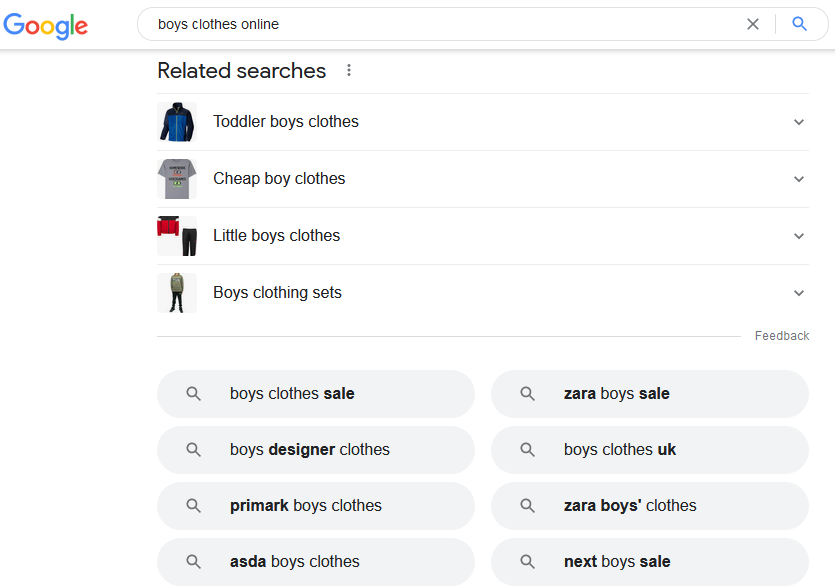How to create an SEO Strategy

Everything you need to know to plan for the 5 areas of your SEO Strategy
SEO is an extremely broad topic, with lots of contributing factors. In this article, we use the core 5 factors to demonstrate how to create a winning SEO Strategy.
If you haven't already, we recommend that you read our SEO Overview >>, to understand what SEO is and how search engines work.
What is an SEO Strategy?
SEO is how we manage our website structure and content (both on and off-site) to rank our pages higher in search engines such as Google & Bing.
An SEO Strategy is how we decide which actions need to be implemented in order to achieve higher rankings and ultimately gain more organic traffic to our website.
It is critical that you ensure your website is clear, fast and easy to understand for both users and search engines.
This will ensure that your website performs well in search results and provides an excellent user experience, with the aim of leading to higher conversion rates.
To get started with your SEO Strategy;
- Open your Web Rocket - Digital Marketing Plan Template and go to the SEO Strategy section
- Read through the article below to understand the core factors of your SEO Strategy
- Explore the related articles to each topic
- Discuss the strategy with your team and complete the relevant sections in your template SEO Strategy plan
The 5 Factors of an SEO Strategy;
- Keyword Research Strategy
- Content & On-page SEO Strategy
- Link Building Strategy
- Technical SEO Strategy
- Local SEO Strategy
Factor 1
Keyword Research Strategy
The first factor we need to consider for our SEO strategy is Keyword Research. We need to understand what terms and phrases, relevant to our business, that people are searching for.
Once we know which terms our potential customers are searching in order to find us, we can optimise our website and content to match these queries and provide the answers.
In doing so, we stand a better chance of Search Engines ranking and presenting our website in search results when a user searches for the term, query or phrase.
Ranking your website for keywords;
With so many companies fighting to be on page 1 of Google and other search engines for particular terms, it's important to choose our target keywords wisely.
Many companies will be targeting the same keywords, which is why competition for the top spot will be much higher for those popular terms.
We should identify and target a combination of the following;
- Broad Keywords - These are typically very open-ended keywords, such as "children's clothes" or "buy kids clothes". These terms are very high competition as they generally have a very high search volume
- Long tail Keywords - These are much more specific search phrases, such as "children's clothing store in Shrewsbury". These are generally easier to rank for, with a lower but more targeted and relevant search volume.
How to do keyword research for your SEO strategy;
Make a full list of broad keywords that are related to your business, services and products. Think about what terms people might use to find what you offer, and list these into relevant groups.
For example, if you sell children's clothes online, one keyword group may focus on "boys clothes", with terms such as "boys shirts" and "boys trousers".
Here is a quick example of some broad keyword groups.
Keyword Group 1 Keyword Group 2 Keyword Group 3 - Children's clothes
- Kid's clothes
- Baby clothes
- Toddler clothes
- Boys clothes
- Boys shirts
- Boys shorts
- Boys trousers
- Girls clothes
- Girls trousers
- Girls skirts
- Girls dresses
You should create a keyword group for each of your primary service types and product groups.
We need to get an idea of how valuable each keyword is by checking out how many monthly searches each one gets. This will help us determine how much potential traffic we can hope to gain.
You should use a research tool like Google Keyword Planner to key in your search terms and take a look at the data. Remember, higher search volumes will generally be harder to rank for, so don't discount highly relevant terms with low search volumes. Even if they have a low number of searches, those searches may be more likely to turn into click-throughs to your website.
What we need to think about is the user intent.
For example, imagine you are a web company, looking to attract new clients. The term "web design" could be searched with the intent of learning web design or some one looking for a web designer among other things.
So we should consider the user intent and perhaps consider the term "web design company". This maintains the broad "web design" term, but adds a dimention that meets the user inten we are looking for.
That way, we know we are reaching a relevant audience.
As you assess the information, you should refine your list down, removing any search terms that do not seem valuable and concentrating on those where we can achieve some relevant traffic.
When researching the search volumes, you should also look at how competitive each term is. This will give you an idea of how hard you are going to need to work to achieve a decent ranking for those terms. You can look at this information in Google Keyword Planner or in this Free Keyword Tool from WordStream >>
Now that you have refined your keyword list, we can focus on expanding the ideas to target your chosen topics. For each of your groups, you should research these broad terms to explore and find similar, relevant keywords and long tail keywords which people are searching for.
For example, when you search Google for "boys shirts" you may find in the suggested searches, "designer boys clothes" or "boys clothes sale" - giving you an indication of more specific terms that people are searching for.

Explore each of the key terms and phrases within your groups by entering them into Google and looking at the related and suggested searches.
You can also look at more specific questions in the "People also ask" section of the Google results.

These results are particulary useful when looking for ideas for blog articles that answer a very specific popular question. Another great free tool for research more long tail keyword and topic ideas is "Answer the Public".
From your research, you will now be able to produce a complete list of keywords and phrases as the foundation of your SEO Strategy.
The list will include a comprehensive breakdown of popular search terms that you will want to target, made up of broad keywords and long tail keyphrases.
You may also want to include the average monthly searches and competition level from your research.
Here is a quick example of a complete keyword group.
Keyword Group 1 Avg Monthly Searches Competition - Children's clothes
- Kid's clothes online
- Baby clothes
- Toddler clothes
- 12,000
- 8,000
- 11,000
- 6,000
- High
- High
- High
- High
- Children's clothes store in Shrewsbury
- Cheap kid's clothes online sale
- Newborn baby clothes for winter
- Toddler clothes for holidays
- 300
- 3,000
- 2,600
- 1,200
- Low
- Medium
- Medium
- Low
This rounded combination of keywords will allow you to create and optimise content for your website to target these terms as part of your SEO Strategy.
To understand more about keyword research, the process and tools available, read our full article;
How to do Keyword Research for your website >>
Add your keyword research to your SEO Strategy
In your Web Rocket - Digital Marketing Plan Template, go to the SEO Strategy section.
Complete the Keyword Research section with a list of the keywords, topics and phrases you would like to target.
Factor 2
Content and On-Page Optimisation
As part of your SEO Strategy, you will now be able to use your chosen keywords to plan the different types of content for your website, and which key terms and phrases they will be targeting.
You should refer to the sitemap from your website plan, and for each of the pages you identified, decide which keywords each will be targeting.
Each page on your website should target only 1 or 2 of your chosen keywords, but should use variations of the keyword naturally throughout the content.
Types of website content pages
This is a selection of some types of important pages you will have on your website;
| Core Pages | Article / Informative | Ecommerce / Process |
|---|---|---|
|
|
|
Write website page content for users and SEO
Once you have identified which keywords you are targeting with a particular page, you will need to write the content.
Although you wont be creating the content itself at the strategy stage, let's just take a quick look at some of the key points for the practice of On-Page SEO.
When you come to create you content, you will need to write informative, descriptive and interesting content.
Each page should have a clear purpose. It should engage the user, be well-structured and easy to read.
Remember, you are writing for the USER FIRST.
- Create a positive user experience by providing valuable content
- Structure your pages with clear sections and headings
- Check spelling and grammar
- Include your target keywords naturally in the page title
- Utilise secondary, long tail and variations of your keyword in secondary page headings
- Include high quality images and graphics
- Do not duplicate page content within your own website or from other websites
Optimise website pages for search engines
These pages will need to be crafted to include information that search engines will read to index, rank and deliver your content. You will need to include your target keywords within your content as well as in the Metadata of each page.
Here is an example search result;

The link text and description in this result come from the metadata on your page.
The blue link text is arguably the most important content signal for search engines to describe what your page is about. This should contain your primary keyword close to the start. You should aim to keep the length to less than 63 characters.
This is the text below the main link to offer some further information about what the user can expect to find on the page when they click through. Whilst this text is not a direct ranking factor, strong meta descriptions can increase click-through rates, subsequently signalling to search engines that users have considered your result to match their query.
The metadata will be found in the SEO setting for each page in your content management system.
If you would like to explore more about hands on practices, we recommend reading the On-Page SEO Guide from Backlinko >>
Add your On-Page Optimisation Plan to your SEO Strategy
In your Web Rocket - Digital Marketing Plan Template, go to the SEO Strategy section.
Complete the On-Page Optimisation Plan with a list of your core pages and which keywords, phrases and topics each one will be targeting.
Be sure to list some ideas for blog poss and articlest which directly target some of the long tail keywords discovered in your keyword research.
Factor 3
Link Building & Off-Site SEO Strategy
We need to plan how we are going to gain high quality, relevant links to our website, and where we want those links to come from.
When search engines see a link on a high quality website which points to our website content, it takes that as a signal that our page is valuable and relevant to the source.
It will therefore give more attention to our page.
To understand more about link building, you should first check out the beginners guide to link building from Ahrefs >>
As part of your Link Building strategy, you should;
- Identify the most important pages you want these links to point to, and the keywords you would like them to rank for.
- From your industry research, identify relevant websites which would provide a valuable link back to your website
- Begin building relationships through outreach with website owners in your niche or industry that will be able to provide valuable ongoing mutual support through link building and cross promotion.
- Consider ways in which you can produce valuable content which site owners will naturally want to link to
- Find local and high quality business directories to add your information to
- Think about press releases which may gain backlinks through media and review websites
- Be sure to share your content across social media platforms where website owners are likely to see your content and potentially link to it
- Research mentions of your brand, products and services across the web and reach out to the website owners to turn these into links
- Analyse competitor link profile to find opportunities to build your own from these sources
Link building is a significant part of SEO which can have major benefits. However, it can be a delicate process with many spammy shortcut tactics which can be damaging to your domain.
Before you start link building, be sure to fully understand the mechanics and implications of your strategy.
You can find out more about the strategies mentioned above on Search Engine Journal >>
Factor 4
Technical SEO
This includes setting up diagnostic and reporting tools such as Google Analytics & Search Console.
This diagnostic tool is highly informative, providing insight into how your website is performing. Check out this useful guide on Google Search Console >>
This offers the same insights for their search engine. Read more information in the guide on Bing Webmaster Tools >>
In most instances, your web developer will assist you with adding the relevant tracking codes to your website and verifying them respectively. (As part of the Web Rocket Guide, EOS Website Platform users will find guidance and assistance with both of these in the website launch chapter).
Once your website is verified, you should also ensure that you (or your web developer);
- Create a Robots.txt file - what's this?
- Generate and submit a sitemap
- Ensure your website is indexed
- Frequently check the diagnostic tools in these consoles for manual actions, guidance, and reports.
Factor 5
Local SEO
Writing informative, descriptive and interesting content that engages the user and is easy to read. This process is relevant to everything on your website, from your home page copy, blog articles, product and service descriptions. Your content is key to reaching your customers for a wider selection of key terms and phrases related to your offering. Crafting each page on your website to include information that search engines will read to index, rank and deliver your content.
These diagnostic tools are highly informative, providing insight into how your website is performing.
Blog Categories
Become a guest blogger
Do you have an article to post about Digital Media & Marketing? Maybe Design or Social Media is your passion?
If so we'd love to hear from you.
Looking for a new website?
If you are looking to develop a new website for your business, why not get in touch and have a chat through your project.
We'll provide you with a free quote and website specification to assist with your planning.





















